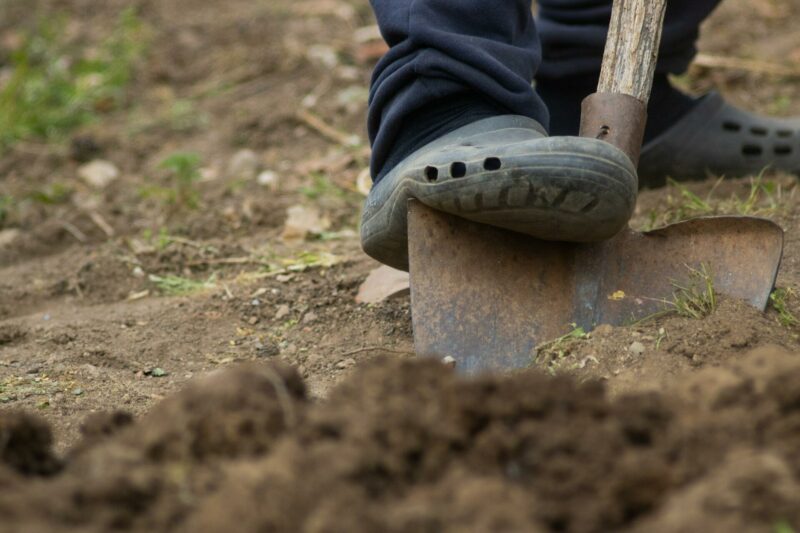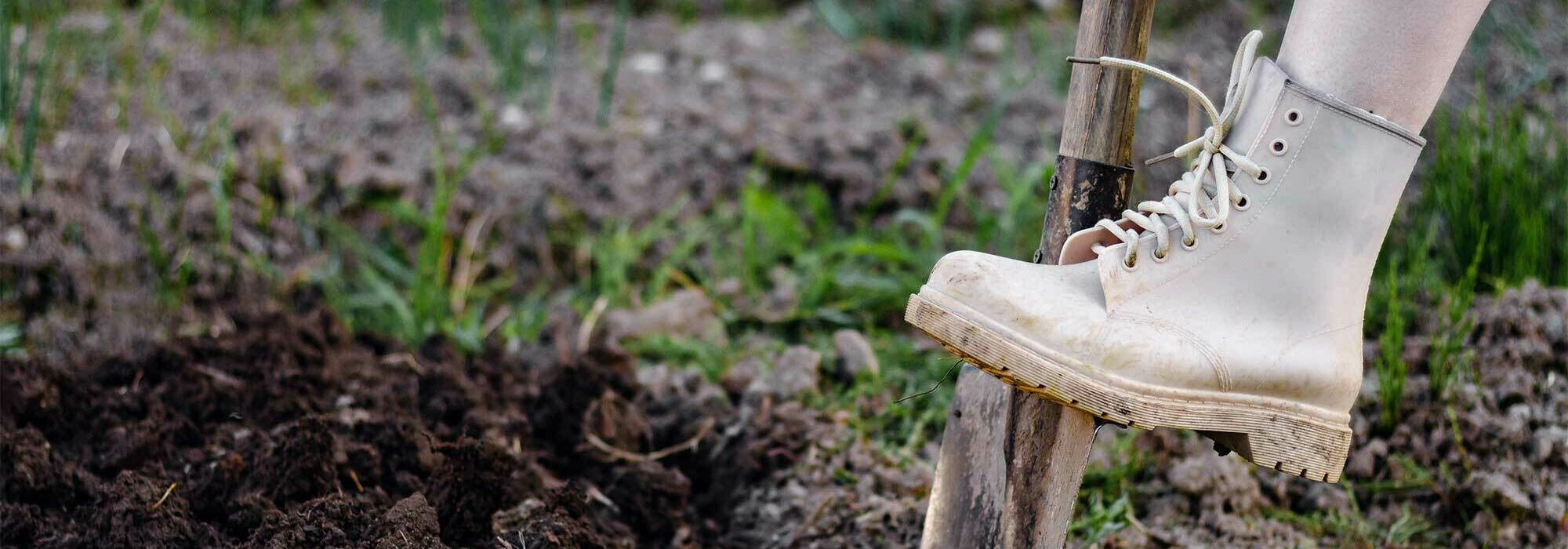Article Excerpt
Digging on your own property can be hazardous. You must call 811 first so they can check for buried pipes and conduits. Learn more about this service.
When you own your home in Texas, you can do whatever you want with it or the land, right? The short answer is “no.” A variety of laws restrict how you may use your own property. Zoning laws, for example, might state that you can only use your suburban lot as a single-family residence, not a commercial sheep ranch.
You cannot engage in activities on your property that create a nuisance for your neighbors. If you are planning a project that requires any significant amount of digging, Texas law requires you to check first for buried utility lines. This requirement protects you and your neighbors.
Damage to a utility line could injure you and cause your neighborhood to lose services. Thankfully, Texas makes it easy to learn about utility lines on your property. You just have to call 811!
What are the hazards of digging in my own yard?
Digging is hard work. You’ve probably seen at least one movie or TV show where a character digs a large hole, seemingly without even breaking a sweat. In movies and TV, this usually involves digging a grave, but that’s not important here. Let’s just call it a big hole. The character always manages to dig straight down for multiple feet, creating a perfectly rectangular hole without hitting tree roots, rocks, or other objects that would interfere with a shovel.

Photo by Riccardo Falconi on Pexels
Let’s be clear about this: That type of hole-digging is 100% fictional. Digging with a shovel requires muscles you probably don’t know you have. It can take hours, even if the only material you encounter is dirt. It’s never just dirt, though. You will almost certainly encounter rocks and roots. The big danger, though, is utility lines.
We rarely think about how water gets to our homes, or where it goes when it leaves. The same goes for how the internet and natural gas get to us. All of those pipes, conduits, and transmission lines are underground. Electrical cables are underground in many areas, too. Utility companies have easements that allow them to run lines into and through private property.
If you start digging on your property without knowing where those utility lines are, you risk causing damage to one or more lines. You could hit a fiber-optic cable that knocks out the internet for all of your neighbors. Worse, you could hit a gas line and cause a fire or explosion.
When do I need to call 811?
The Underground Facility Damage Prevention and Safety Act, also known as the Texas One-Call Law, establishes an organization, Texas 811, to manage information about utility lines throughout the state. You can obtain this information by calling 811 or visiting texas811.org.
You must call 811 before beginning any project in which you will be digging 16 or more inches into the ground. This could include:
Installing a pool
Planting a tree
Building a fence or deck
Creating a garden or doing other landscaping
If you are hiring a contractor for a job that requires digging, either you or the contractor is responsible for calling 811.
You must call at least two business days before starting the project. This does not include weekends or holidays. If you want to start a project on Monday morning, you must call the previous Wednesday.

Photo by Alfo Medeiros on Pexels
What happens when I call 811? What do they do?
When you submit a ticket to Texas 811, it will notify utility companies and any other entity that owns transmission lines, pipes, and other equipment that could be located under your property. Those entities have 48 hours to come to your property and locate any areas of concern. This service is free of charge.
Utility line owners will use color-coded flags:
Blue: Water lines
Green: Sewer lines
Purple: Irrigation lines
Red: Electrical cables and conduits
Yellow: Gas, oil, or steam pipes
Orange: Communications lines, including internet and telephone
Pink: Temporary survey markings
White: Proposed excavation site
![Photo by z22 on Wikimedia Commons [Creative Commons] orange utility flag](/images/articles/_generalPhotoStandard/colored-utility-flags.jpg)
Photo by z22 on Wikimedia Commons [Creative Commons]
After 48 hours, you or your contractor should confirm that everyone has responded to the ticket. You will then be able to begin the project. You are responsible for avoiding marked areas. If you cannot avoid a marked area, you must be very careful, since you could be liable for any damage you cause there.
Will calling 811 reveal all buried or hidden utilities?
Texas 811 is only responsible for identifying underground pipes and cables that enter your property from elsewhere. If you have underground equipment that is only located on your property, it will not be marked. This might include the following:
Septic tanks and lines
Underground storage tanks
Landscape irrigation lines, including sprinkler systems
Electrical lines for landscape lighting
Water and electrical lines for swimming pools or spas
This type of equipment is solely your responsibility.

It is possible to have unknown equipment buried on your property. Sellers are supposed to disclose septic tanks and similar features to buyers, but that doesn’t always happen. If you discover a septic tank on your property that you didn’t know was there, you could have a legal claim against the seller if you can prove that they knew about it but failed to tell you. A real estate attorney can advise you of your rights in that situation.
What else can I do to stay safe when digging?
Safety while digging involves more than avoiding hazards like gas lines. As mentioned above, digging is grueling work. Even if you are in phenomenal shape, digging might work muscles that don’t usually get a workout. Consider a trench digging tool or a strong spade to split stones. Limestone is very common in Texas.
For anything more than a few simple holes, you should consider hiring a professional. Contractors are likely to bring excavating equipment since they don’t want to spend the whole day digging either.
Wish you could revamp your yard?
Sprucing up your yard with a new fence or installing any fixture requiring a hole to be dug or cement to be poured is likely not possible if you’re renting. When you own a home, this freedom is generally available to you, barring any HOA rules.
Make your house your home. Easily discover which mortgage options are best for you by getting started with a few quick questions!



